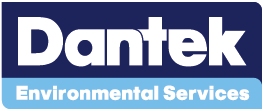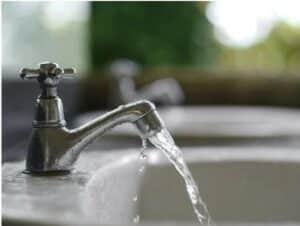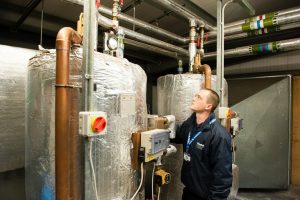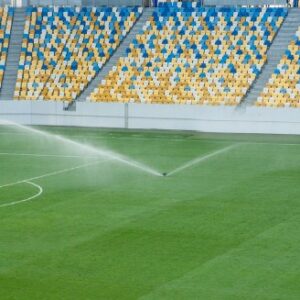Water Hygiene in Educational Facilities
Water Hygiene in Educational Facilities: A Guide to Legionella Control
As the designated individual responsible for managing a School, College, or University, your top priority is the safety and well-being of students, staff, and the general public. A crucial element of ensuring their safety revolves around maintaining clean and safe water conditions, with a specific focus on controlling Legionella bacteria. This blog aims to underscore the significance of regular water hygiene monitoring and how it enables educational settings to promptly identify and address potential Legionella-related issues.
Understanding the Significance of Water Hygiene Monitoring:
Water hygiene monitoring plays a pivotal role in several aspects. Legionella bacteria are the causative agents behind Legionnaires’ disease. Regular monitoring facilitates the early detection of any potential Legionella presence, allowing immediate action to prevent their growth and spread. By addressing the issue promptly, educational settings not only protect the health of students and staff but also ensure compliance with relevant Health & Safety regulations. Schools, Colleges and Universities, with their diverse campuses and facilities, bear the responsibility of safeguarding the well-being of all individuals involved. For comprehensive guidance, we recommend consulting HSG274 Part 2: The control of Legionella bacteria in hot and cold-water systems. You can access the publication here: https://www.hse.gov.uk/pubns/priced/hsg274part2.pdf
Understanding the Risks:
Legionella bacteria thrive in water systems with temperatures between 20°C and 45°C, making them particularly problematic in educational settings where warm water is frequently used. Classrooms, laboratories, hall of residence, and other water sources present an ideal environment for the growth and spread of Legionella. It is vital for educational institutions to comprehend the risks associated with Legionella and take appropriate measures to mitigate them.
Applying HSG274 Part 2:
HSG274 Part 2 is a comprehensive guide specifically tailored to the control of Legionella bacteria in hot and cold water systems. This document provides valuable insights and practical advice for implementing effective water hygiene measures. Let’s explore some key recommendations from the guide that can help you maintain a safe environment: https://www.hse.gov.uk/pubns/priced/hsg274part2.pdf
Risk Assessments:
Regular risk assessments play a vital role in identifying potential sources of Legionella contamination, making them an essential practice. It is imperative to thoroughly evaluate all water systems present in your setting, ranging from storage tanks and plumbing to recreational water features. These assessments should be conducted by knowledgeable individuals who possess expertise in Legionella control to ensure accurate evaluation and effective management. (Please see our earlier blog for further details on Legionella Risk Assessments)
Water Treatment and Monitoring:
Develop a robust water treatment plan to prevent and control the growth of Legionella bacteria. This may involve implementing disinfection measures, such as chlorine or other appropriate biocides. Regular monitoring of water quality and temperature is essential to ensure that control measures are effective and maintained at the desired level.
Hot Water Systems:
Regular monitoring of temperatures is of utmost importance for effective Legionella control. Close attention should be given to the flow and return temperatures of the calorifier, and thermostat settings should be adjusted accordingly to maintain temperatures to 60 °C. In non-circulating and circulating systems, specific points should be monitored to ensure that the temperature reaches a minimum of 50 °C within one minute. Additionally, monitoring the temperature of other outlets helps establish a comprehensive temperature profile of the entire system over time. We recommend an additional 20% per month.
Cold Water Systems:
Frequent inspection of cold water storage tanks is essential to promptly identify and address any issues that could impact water quality. Regular cleaning and necessary repairs should be conducted as needed. Temperature checks at specific taps are crucial to ensure that the water temperature remains below 20 °C within two minutes of running the cold tap. Monitoring other outlets also contributes to creating a comprehensive temperature profile of the entire system. We recommend an additional 20% per month.
Cleaning and Maintenance:
Implementing consistent cleaning and maintenance protocols for all water systems is essential. It is crucial to regularly eliminate scale, sediment, and biofilm, as they create an environment conducive to Legionella growth. Proper maintenance of taps, sinks, and other water outlets is vital to prevent stagnation and ensure smooth water flow. Regular upkeep of showers and spray taps is particularly important to mitigate the risk of Legionella contamination. Cleaning and descaling removable parts, heads, inserts, and hoses should be carried out on a quarterly basis. In high-risk areas, more frequent maintenance may be required to ensure effective control.
Remember, Legionella control is an ongoing process that requires vigilance and commitment. By prioritizing the safety of students and staff, educational settings can create a secure environment where everyone can focus on learning and other activities with peace of mind.
Experts in Water Hygiene:
Our commitment lies in the prevention of Legionnaires’ disease through effective water hygiene management. With our specialized knowledge in the educational sector, we offer valuable support and guidance to control Legionella bacteria in a wide range of water systems. This includes classrooms, laboratories, hall of residence, and other facilities on campus. Our team is well aware of the importance of ensuring the well-being of students and staff, and we bring extensive experience in managing water systems across various Schools, Colleges and Universities.
Exceptional Service and Reliability:
At Dantek, we take pride in providing exceptional service and support to our customers in the educational sector. Our team of experts are extensively trained, ensuring that all work is completed efficiently, cost-effectively, and with minimal disruption to your operations. We prioritize quick response times and offer immediate answers to any questions or concerns you may have. Additionally, we understand the challenges that come with managing academic schedules and events, and we work closely with you to ensure our attendance is carefully managed to avoid any disruptions.
Our Expert Team is Here to Support You
Contact Us Now!
📞 Phone: 01454 417 920
📧 Email: sales@dantek.co.uk

 At Dantek, we understand the importance of staff education and training in the sports sector. We offer a comprehensive range of training programs tailored to the specific needs of the industry. Our offerings include basic Legionella e-learning, classroom-closed system water treatment training, cooling tower operative training, Legionella awareness, and responsible person training. With Dantek, you can rest assured that you and your staff are well-equipped to address Legionella risks and ensure a safe environment for all.
At Dantek, we understand the importance of staff education and training in the sports sector. We offer a comprehensive range of training programs tailored to the specific needs of the industry. Our offerings include basic Legionella e-learning, classroom-closed system water treatment training, cooling tower operative training, Legionella awareness, and responsible person training. With Dantek, you can rest assured that you and your staff are well-equipped to address Legionella risks and ensure a safe environment for all. Let’s explore this essential practice and its significance in safeguarding the health of all individuals who utilize sports facilities.
Let’s explore this essential practice and its significance in safeguarding the health of all individuals who utilize sports facilities.
 In the world of sports, maintaining pristine playing conditions is of utmost importance. From football and cricket to golf and tennis, the quality of the pitch can greatly impact the performance and safety of athletes. One essential component in maintaining these optimal conditions is the irrigation systems. However, it is crucial to recognize that irrigation systems can also pose potential health risks if not properly managed, specifically when it comes to Legionella contamination.
In the world of sports, maintaining pristine playing conditions is of utmost importance. From football and cricket to golf and tennis, the quality of the pitch can greatly impact the performance and safety of athletes. One essential component in maintaining these optimal conditions is the irrigation systems. However, it is crucial to recognize that irrigation systems can also pose potential health risks if not properly managed, specifically when it comes to Legionella contamination.